Menu
Georgina Blaskey tracks the different methods schools are adopting for children to learn outside the confines of the school building.
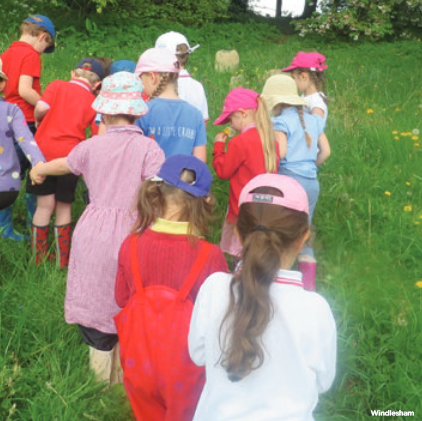
Outdoor learning is not a new concept but it continues to gather momentum. In our ever-growing technological world, parents and educators recognise the importance of balance between time spent on screens and time spent experiencing the natural world. Schools that used to display their array of iPads, coding programmes and ICT suites for all age groups, now champion their outdoor learning curriculum with as much enthusiasm, especially in city schools where children’s exposure to the environment can be more limited than for their country cousins.
From the early years of nursery and reception, a healthy exposure to fresh air and nature is important. Many city-based nurseries have gardens for breaktime and mud kitchens for messy play, but Leanna Barrett has taken it one step further. “I was so disappointed when I was looking for nurseries for my child so I started Little Forest Folk on Wimbledon Common. It’s a fully outdoor forest nursery that immerses two to five-year-olds in nature, helping them become creative, resilient little learners.” The nurseries (the sixth opened in Twickenham in spring 2019) connect children back to nature, inspiring them to live a naturally healthy lifestyle that builds confidence, independence and self-motivation – all the tools Leanna says they need for a happy and successful life.
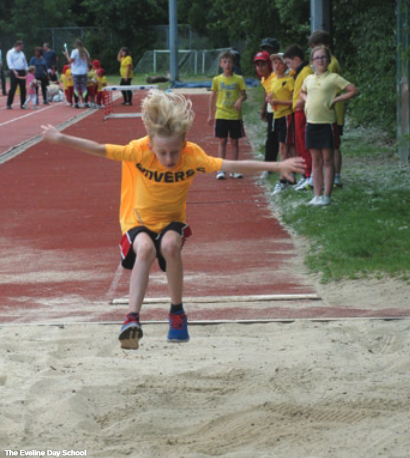
Once a child enters the traditional school system, the opportunity for time outdoors can be compromised, with the demands to meet the rigorous school curriculum even encroaching on breaktimes. Research in May 2019 by the UCL Institute of Education found school breaks have been significantly shortened over the last 20 years. The study of breaktimes revealed children aged five to seven now have 45 minutes less breaktime per week than those in 1995, and afternoon breaks seen in almost all primary schools in 1995 have virtually disappeared.
In order to counteract this development, schools are bringing the classroom outside. OFSTED recognises the positive benefits of outdoor learning in that it contributes significantly to raising standards and improving pupils’ personal, social and emotional development. It believes that it is most successful when it is an integral element of long-term curriculum planning and closely linked to classroom activities. One caveat is that the success of learning outside the classroom depends very much on the leadership of the schools and colleges.
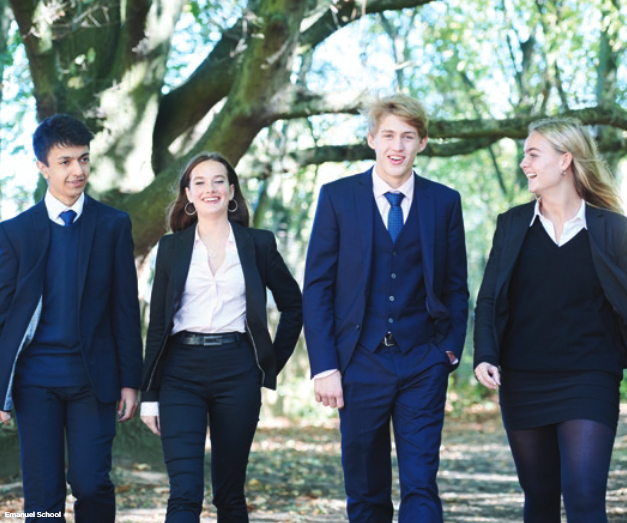
The Council for Learning Outside the Classroom (LOtC) recognises and promotes the benefits in young people’s attainment and social, emotional and personal development by providing information, advice and guidance to help schools work with young people to plan, run and evaluate exciting and challenging activities outside the classroom. There is even an annual conference on the subject as this year LOtC has teamed up with the Outdoor Education Advisers Panel to host a national conference dedicated to learning beyond the classroom, taking place in Blackpool in November.
LOtCs CEO Kim Somerville refers to learning beyond the classroom as preparing young people for life beyond and after school. ”They must have opportunities to experience the world beyond the classroom,” she says.
There is no doubt that, done well, learning outside the classroom improves children’s achievement, safety and all-round development. They are able to apply their skills in everyday situations and that really brings things alive for them. There is a wealth of evidence which clearly demonstrates the benefits of learning outside and it revolves around inspiring children to reach their true potential, remotivating children who do not thrive in the traditional classroom environment and increasing self-esteem, and raising attainment and improving discipline.
Creative Education have come up with ten reasons why children should learn outside the classroom:
• It makes learning more engaging. Subjects such as maths can be taught, where children find 2D and 3D shapes, find the height of a tree using trigonometry or compare the area explored to measurements on a Google map• It makes learning concepts real and relevant by being able to put them into a more realistic context
• It nurtures creativity and imagination by letting childrens’ minds run free
• Children learn more when they’re happy and engaged
• Children will be more motivated to attend school
• It can often mean a general improvement in behavior, although learning beyond the classroom does require implementing a new set of behavior management processes
• It develops interest in the environment and wider surroundings
• It exposes children to new opportunities
• It keeps them healthy
• Children can enjoy almost limitless – and often free – resources.
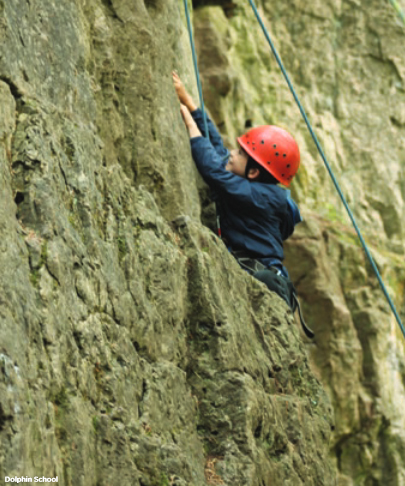
At Newton Prep, outdoor learning is embedded in the school’s approach and the classroom is taken outdoors to their on-site garden. “We have visits from a farm which brings its animals to our garden,” says Susannah Frieze of Newton Prep. “Children groom a sheep, bottle-feed a lamb or tickle an alpaca. For city kids it’s so memorable that the animals come to their turf. Then they sit down and write about their experience and their memories.”
At Alleyn’s Junior School, reception class pupils enjoy a full afternoon in the woods every week within the school’s 28-acre grounds. “Having the chance to spend extended periods of time having adventures and enjoying nature really helps to develop their creativity and independence,” says Headmaster Simon Severino.
Even extracurricular clubs are being stretched beyond the norm at some schools – The White House Prep School has built an electric car during Engineering Club which has been raced at Goodwood and other tracks. The team, known as The White House Whizzers, worked collaboratively to create the vehicle which they then race to compete against other teams – engineering prowess, team building and school pride rolled into one rich learning experience.
At Windlesham, a co-ed prep school in West Sussex, the Maths department loves to take lessons outside. Teacher Ali Wild explains, “Learning outside of the classroom is so freeing for the children from what can sometimes be the restrictive boundaries of the classroom. Being outside with its almost limitless resources brings higher levels of motivation and greater enjoyment. This ultimately leads to higher achievement.”
Part of engaging with the curriculum includes a range of trips to bring the studies of the timetable alive. “At Cranleigh Prep, we strongly support the theory that ‘I do: (therefore) I understand’ and so, whether the pupils toy with tarantulas, stand on the stage at the Globe Theatre, retreat to Wales for a writers’ workshop or weave a fire-breathing dragon, their senses have been stimulated and real-life connections made,” says Headmaster Neil Brooks.
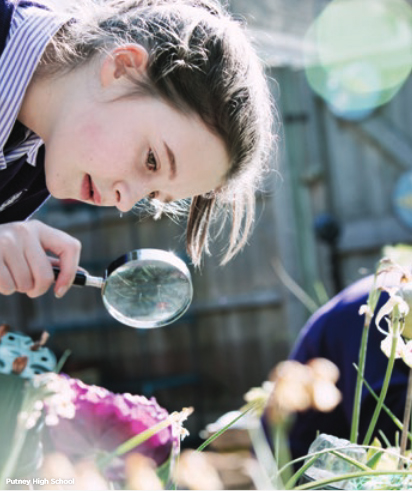
A big drive among secondary schools today is to develop an awareness in their teenagers of the individual’s role in wider society. The benefits of schemes that include an element of community service and volunteering can not only help pupils with their university applications and personal statement, they can ignite passion in areas which traditional school life cannot expose them to and teach them soft skills beyond classroom learning.
Emanuel has outreach and community partnerships in the local area and from September 2019, all pupils take part in Friday afternoon sessions in which lessons are replaced with service, either to local charities or in local primary schools. “It’s important for teenagers to have a sense of the world beyond the school gates,” says Head Robert Milne. “I believe schools should play a role in social mobility and I see our pupils wanting to meaningfully contribute to the local area.”
The Duke of Edinburgh scheme, still going strong after 60 years, has been instrumental for many young people: 93 per cent of participants feel that the scheme has helped them to work in a team and 84 per cent feel that they have become a more responsible person. You can’t get that from an A level!
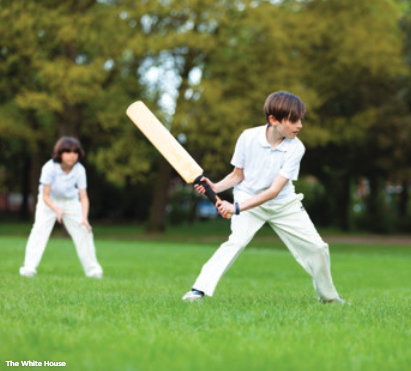
Richard Alldrick, housemaster and Duke of Edinburgh Award Manager at Alleyn’s School, says: “There continues to be a huge demand for the Award among our pupils, which, while offering many exciting opportunities and adventures, can also be challenging. We welcome the way in which the scheme nurtures positive attributes such as enterprise, purpose and perseverance, and we find that these new experiences – whether volunteering in the local community or participating in an outdoor expedition across rugged terrain – help to encourage and develop skills that may not otherwise have been identified.”
Summer camps are another source of outdoor activity for children. PGL has been offering life-enriching outdoor adventures for children since 1957 while Camp Suisse has been operating for 15 years in an alpine village. Such adventures, “help campers grow as people, improving self-belief, confidence, responsibility and time management,” says the company’s Julie Tyler.
A staunch convert of outdoor learning is Eveline Drut of The Eveline Day and Nursery Schools. “The awe and wonder of learning in an outdoor environment cannot be underestimated,” she says, citing the early pioneer Margaret McMillan from the 1920s.
“She wrote that ‘The best classroom and the richest cupboard are roofed by the sky’.
“All subjects can be taken outdoors,” says Drut, “which helps to enhance the children’s experience as it removes the pressure of academia and allows them to play to their strengths.
“The fresh air, excitement and getting messy are all sensory experiences which help to improve communication skills. Children develop an interest in the great outdoors and a relationship with the natural world, helping to protect the environment for generations to come.”
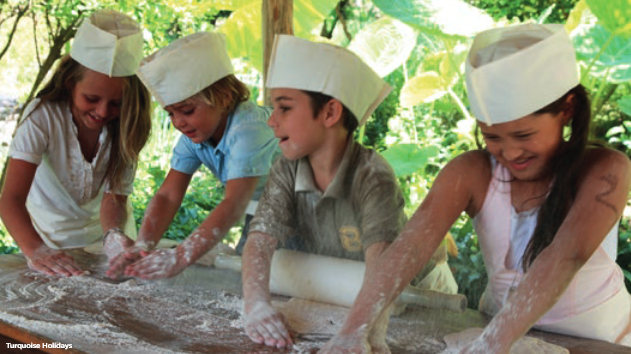
Drut believes that outdoor learning is also beneficial for teachers, as it allows them to observe their children in a different setting and gain a new perspective and understanding of their class.
Schools have a responsibility to guide their pupils through their education, but their duty of care gives them the opportunity to offer even more. By exposing children to life’s lessons beyond the classroom they can give them the character development and sense of self that will carry them through to adulthood.